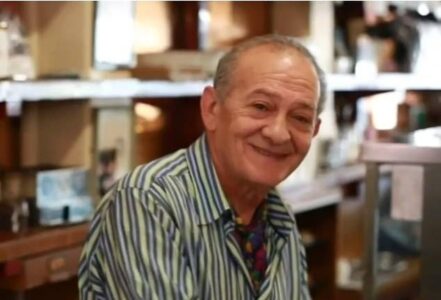
Police struggling to keep tabs on 350 potential terrorists when beloved Melbourne cafe owner was murdered
Overworked counter terrorism cops were monitoring 350 potential terrorists when beloved Melbourne cafe owner Sisto Malaspina was murdered on Bourke Street.
As a coronial inquest continues into the atrocity, it was revealed Victoria Police had struggled to keep on top of the number of people required to be monitored.
Hassan Khalif Shire Ali stabbed Mr Malaspina to death on Bourke Street two years ago before police shot him dead.
He had packed his ute with gas canisters, knives and drove into Melbourne’s CBD where he blew up his car and stabbed three people.
On Friday, the coroner heard police ought have had serious concerns about Shire Ali in the months leading up to the attack.
The killer had an atrocious criminal history, which gave police misguided comfort that he was not a real threat of committing a terrorist attack.
Coronial Judge John Cain is in the process of investigating whether Shire Ali’s attack was terrorism, what key security agencies knew and whether the incident could have been prevented.
In 2018, terror attacks had been undertaken with murderous effect across the globe with Islamic State claiming many of the innocent scalps.
Just months before the Bourke Street attack, in similar circumstances, a man had stabbed one pedestrian to death and injured four others in Paris before being shot dead by police.
Victoria Police Deputy Commissioner Ross Guenther told the inquiry on Friday that a series of intelligence gaps saw Shire Ali slip through the net.
Police officers did not even know where Shire Ali was living at the time of the attack.
The inquiry has heard police did not believe the would-be killer was not a threat of committing a terror attack because he was a drug user and petty thief.
On Wednesday, an unsworn officer working for Victoria Police told the coronial inquest he did not think Shire Ali had the history to warrant him being placed under further police scrutiny.
He had been working for Victoria Police’s counter terrorism team in July 2018 when a referral for Shire Ali came through from its Security Intelligence Unit, which wanted him looked into.
A quick scan revealed Shire Ali had been a person of interest since 2015 when he had attempted to leave the country for Somalia.
The police database also revealed he had an extensive criminal history not in line with a man ‘overly adherent or observant to radical interpretation of Islam’.
Shire Ali had a list of offences dating back to 2010 when he was busted in possession of cannabis.
Over the next few years police surmised that Shire Ali had a chronic weed habit which was causing him to commit other crimes.
He also appeared to be a boozer and a petty thief.
In 2017, Shire Ali told an officer he had been ‘caught up in the wrong crowd’ and by then was addicted to ice.
About a year before the attack on Bourke Street, he was found yet again by cops in possession of cannabis.
The officer, who cannot be named for legal reasons, said he took into account Shire Ali’s history, including information he was sympathetic to Islamic State of Iraq, in knocking back the request.
‘This intelligence was largely historic and since that time, there had been little information to indicate Shire Ali had a radical interpretation of Islam or intended to commit an act of violence on a specific group,’ he said.
A lack of information on Shire Ali’s personal circumstances compounded the problem.
At the time of the attack, police said the killer was inspired by ISIS to commit jihad, but they were unsure if he had direct contact with the terrorist group.
ISIS claimed his as one of their own, but often falsely associate themselves with lone wolf attacks.
Shire Ali’s passport had been cancelled in 2015 after he was flagged as one of 300 potential security risks when it was discovered he planned to travel to Syria.
Assistant AFP Commissioner Ian McCartney said in a press conference the morning after the rampage that though Shire Ali had been on their radar, but police decided not to intervene.
‘While he held radical ideals, he didn’t hold a threat,’ he said. ‘It’s a reality check for us that even with the fall of the Caliphate (with ISIS-held territory taken back in Syria and Iraq) the threat is still very real.
‘It’s a complex and challenging business working on these threats on a daily basis the assessment was that he wasn’t a threat at that time.
‘Obviously in terms of when he turned from radicalisation to these actions will be a focus of these investigations.’
The coronial inquest is expected to run into next week and hear evidence from Shire Ali’s wife and his brother-in-law.
Source: Daily Mail





